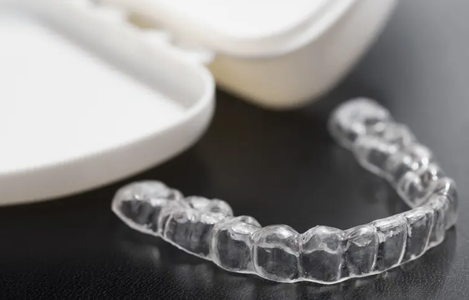Sachar Dental NYC
For SAME day / emergency appointments
Call (212) 752-1163
All the below content has been written by NYC Dentist, Dr. Sandip Sachar.
Teeth Grinding, Bruxism and TMJ Pain
Teeth grinding, also known as bruxism, is a common issue affecting millions of people worldwide, often leading to headaches, jaw pain, and even damaged teeth. Fortunately, you can stop grinding your teeth naturally by adopting effective lifestyle changes and holistic remedies. Techniques such as stress management, proper sleep hygiene, and dietary adjustments can significantly reduce bruxism symptoms without the need for costly treatments or invasive procedures. We will explore these natural solutions in detail, empowering you to protect your dental health and achieve lasting relief.

What Is Bruxism?
Bruxism is the medical term for grinding, clenching, or gnashing of the teeth. It typically occurs involuntarily and can happen while you’re awake (awake bruxism) or asleep (sleep bruxism). According to the American Dental Association (ADA), stress and anxiety are the leading causes of bruxism. However, misaligned teeth, certain medications, and lifestyle habits, such as caffeine and alcohol consumption, can also contribute to this condition. One study revealed that teeth grinding is associated with tobacco and alcohol use. Researchers found that people who smoke or drink alcohol or coffee are twice as likely to grind their teeth as people who don’t.
Symptoms of Teeth Grinding
- Jaw Pain or Soreness: Often due to muscle tension from clenching.
- Headaches: Particularly in the temples or tension-type headaches.
- Tooth Sensitivity: Caused by worn-down enamel.
- Chipped or Cracked Teeth: Resulting from excessive pressure.
- Ear Pain: Without any underlying ear infection.
- Disturbed Sleep: Grinding sounds that may disturb your sleep or your partner’s.
Natural Remedies to Stop Grinding Your Teeth
- Stress Reduction Techniques
Since stress and anxiety are primary triggers for bruxism, incorporating relaxation techniques can significantly reduce teeth grinding. Consider the following:- Meditation and Mindfulness: Practice daily meditation to calm your mind and decrease anxiety.
- Deep Breathing Exercises: Deep, controlled breaths can help relax the jaw muscles.
- Practice Muscle Relaxation: Relaxing the muscle will relieve muscle pain
- Yoga and Tai Chi: These activities promote relaxation and overall mental well-being.
- Proper Sleep
Poor sleep quality is linked to increased bruxism. Improving your sleep habits can make a big difference:- Maintain a Regular Sleep Schedule: Go to bed and wake up at the same time daily.
- Create a Calming Bedtime Routine: Reading or taking a warm bath can help relax your body.
- Limit Caffeine and Alcohol Intake: Especially before bedtime, as they can disrupt sleep patterns.
- Optimize Your Sleep Environment: Ensure your bedroom is cool, dark, and quiet.
-
Jaw RelaxationRelaxing the jaw muscles can alleviate tension and reduce muscle pain and soreness.
-
Jaw Muscle Relaxation: Gently keep your lips together but teeth apart.
-
Tongue Positioning: Rest your tongue on the roof of your mouth.
-
- Dietary Adjustments
Certain foods and drinks can exacerbate bruxism symptoms. Consider the following:- Avoid Chewy Foods: Like gum or tough meats that can overwork the jaw muscles and make existing symptoms worse.
- Limit Caffeine and Sugar: Both are known to increase anxiety and muscle tension.
- Stay Hydrated: Dehydration can cause muscle cramps, including in the jaw.
- Herbal Remedies and Supplements
Natural supplements may help in managing stress and muscle tension. Some effective options include:- Magnesium: Helps relax muscles and improve sleep quality.
- Chamomile Tea: Has soothing properties that can calm the nervous system.
- Behavioral Changes
Become more mindful of your teeth-clenching habits during the day. Techniques to help you break the habit include:- Awareness Training: Setting reminders to check your jaw position throughout the day.
- Posture Correction: Maintaining good posture reduces unnecessary muscle tension.
When to Seek Professional Help
- Persistent pain in the jaw, teeth, or face.
- Cracked, chipped, or severely worn-down teeth.
- Chronic headaches or earaches.
-
Disturbed sleep due to grinding
Final Thoughts: Protecting Your Dental Health Naturally
Teeth grinding, though common, is a serious condition that can lead to long-term dental issues if left untreated. The good news is that natural remedies, ranging from stress management to dietary changes, can effectively reduce he symptoms of bruxism.
If you suspect you have bruxism or need personalized advice, don’t hesitate to reach out to our highly regarded TMJ specialist in NYC, Dr Sachar, for consultation.
Dr Sandip Sachar is a highly respected NYC dentist with extensive experience in the diagnosis and treatment of TMJ pain and disorders.
Call today to schedule an appointment.
Read MORE on our services page.
20 East 46th Street
Rm 1301
(Between 5th Ave & Madison Ave)
New York, NY 10017
212-752-1163
https://www.sachardental.com/
drsachar@sachardental.com